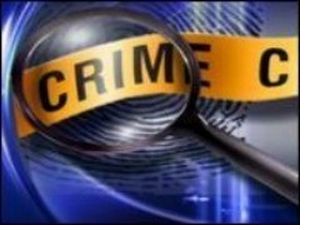 We get lots of mail asking for Discussion Questions for mysteries, and there've been a lot of them lately—emails AND new crime novels (all claiming to be the "new" Gone Girl).
We get lots of mail asking for Discussion Questions for mysteries, and there've been a lot of them lately—emails AND new crime novels (all claiming to be the "new" Gone Girl).
Sadly, for book clubs, authors or publishers don't often issue questions for mysteries—for a couple of reasons:
♦ Specific questions tend to give away the plot, ruining the element of surprise. Remember, mysteries depend on withholding information.
♦ Bestselling crime novels aren't considered "book club" material. They're all about plot and don't necessarily open themselves up to discussions about character dynamics or weighty social issues. Major serial authors like James Patterson, Michael Connelly, J.D. Robb, David Baldacci write for different reasons and audiences.
So we've got our own questions below. Feel free to use them or access them here.
Questions for Mystery - Crime - Suspense - Thrillers
1. Talk about the characters, both good and bad. Describe their personalities and motivations. Are they fully developed and emotionally complex? Or are they flat, one-dimensional heroes and villains?
2. What do you know...and when do you know it? At what point in the book do you begin to piece together what happened?
3. Good crime writers embed hidden clues, slipping them in casually, almost in passing. Did you pick them out, or were you...clueless? Once you've finished the book, go back to locate the clues hidden in plain sight. How skillful was the author in burying them?
4. Good crime writers also tease us with red-herrings—false clues—to purposely lead us astray? Does your author try to throw you off track? If so, were you tripped up?
5. Talk about the twists & turns—those surprising plot developments that throw everything you think you've figured out into disarray.a. Do they enhance the story, add complexity, and build suspense?
b. Are they plausible or implausible?
c. Do they feel forced and gratuitous—inserted merely to extend the story?
6. Does the author ratchet up the suspense? Did you find yourself anxious—quickly turning pages to learn what happened? A what point does the suspense start to build? Where does it climax...then perhaps start rising again?
7. A good ending is essential in any mystery or crime thriller: it should ease up on tension, answer questions, and tidy up loose ends. Does the ending accomplish those goals?a. Is the conclusion probable or believable?
b. Is it organic, growing out of clues previously laid out by the author (see Question 3)?
c. Or does the ending come out of the blue, feeling forced or tacked-on?
d. Perhaps it's too predictable.
e. Can you envision a different or better ending?
8. Point to passages in the book—ideas, descriptions, or dialogue—that you found interesting or revealing, that somehow struck you. What, if anything, made you stop and think? Or maybe even laugh.
9. Overall, does the book satisfy? Does it live up to the standards of a good crime story or suspense thriller? Or does it somehow fall short?
10. Compare this book to other mystery, crime, or suspense thrillers that you've read. Consider other authors or other books in a the series by the same author.
(Questions by LitLovers. Please feel free to use them, online or off, with attribution. Thanks.)
